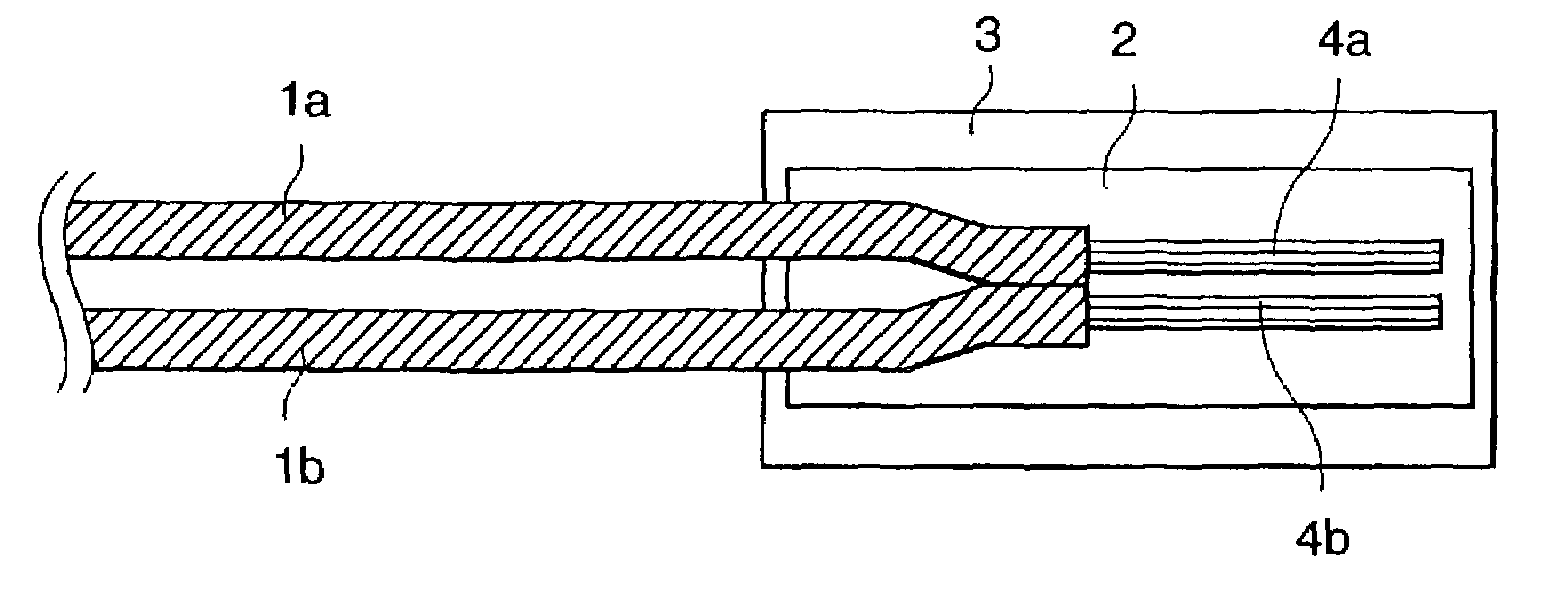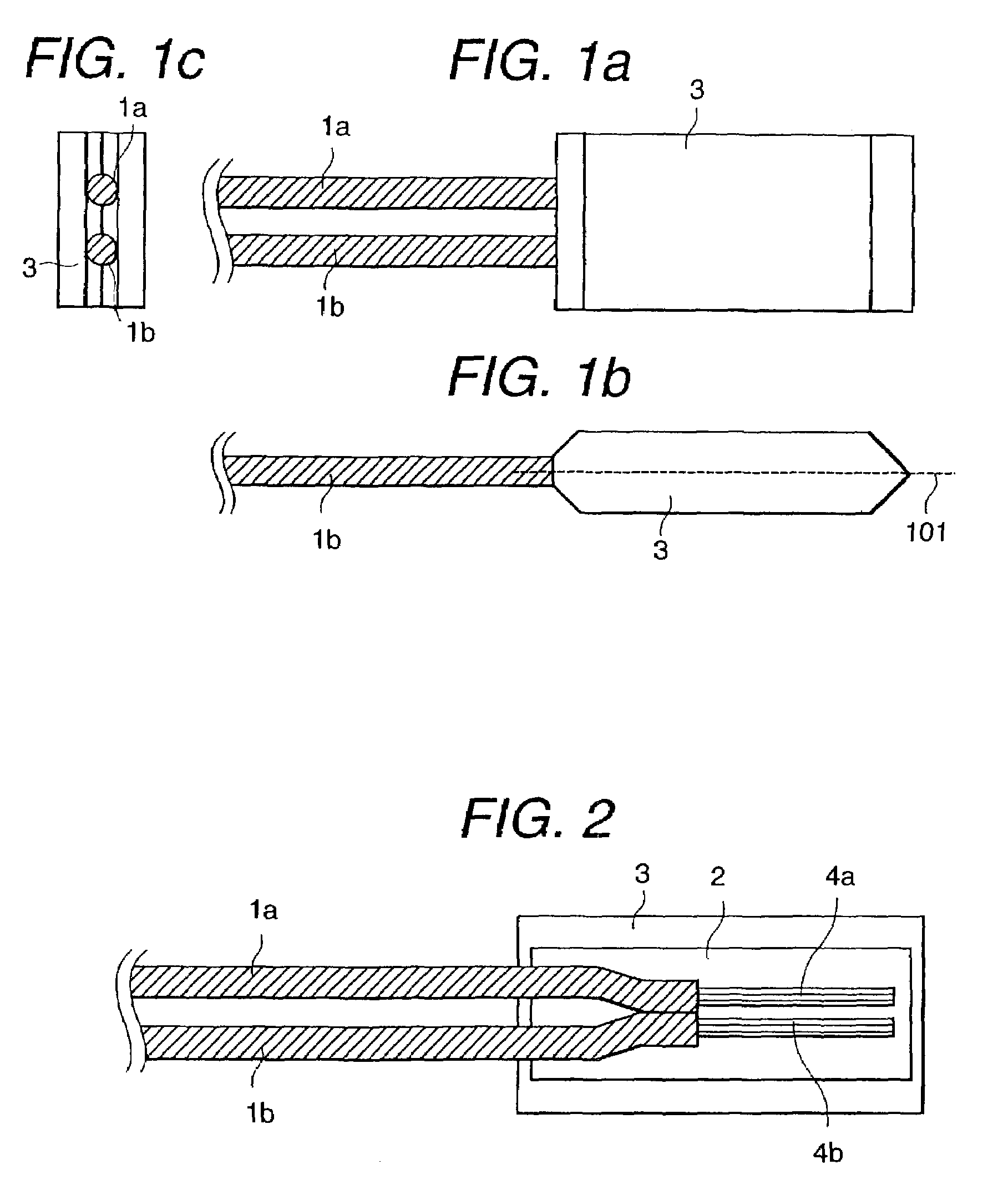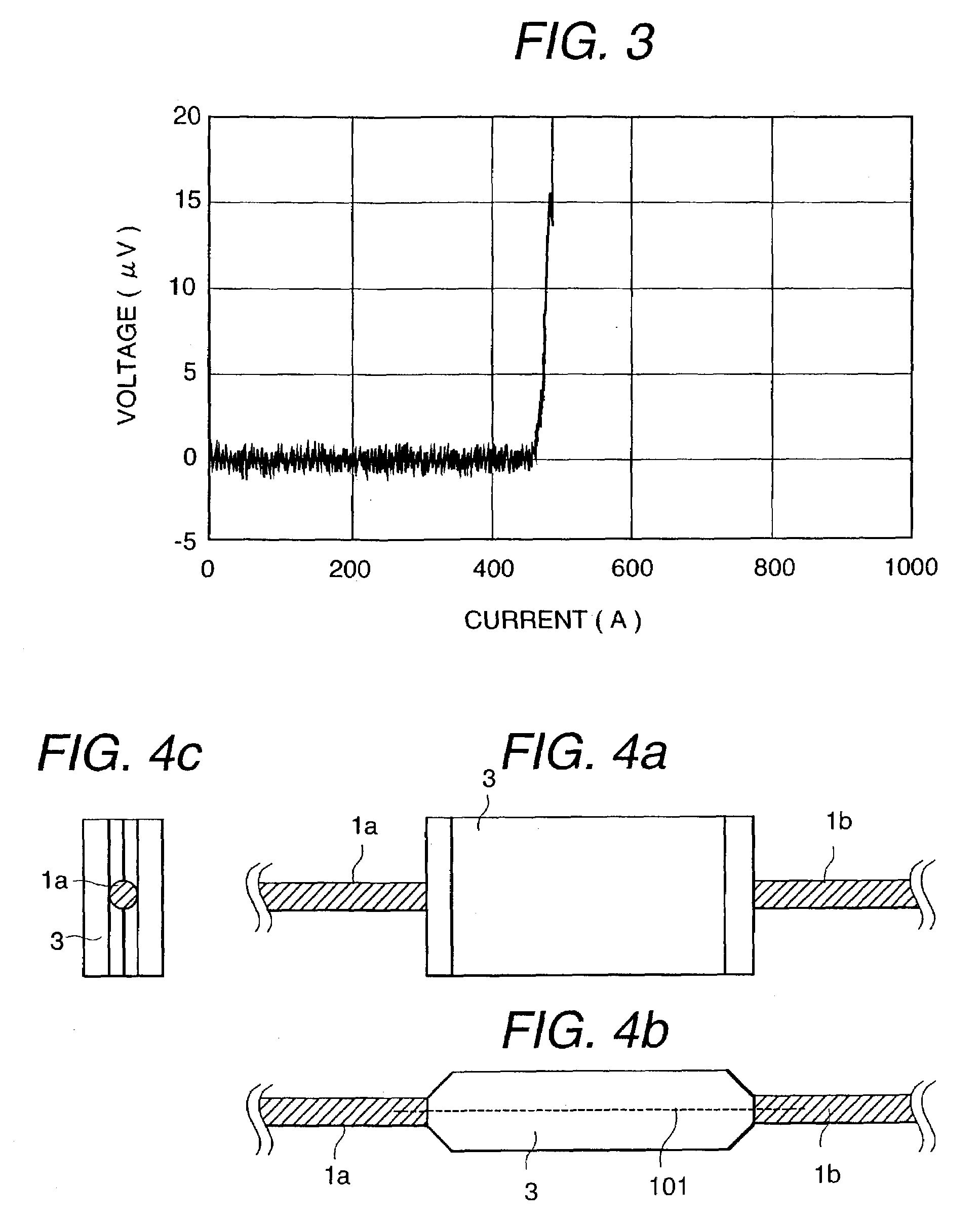Superconductor connection structure
a superconductor and connection structure technology, applied in the direction of connection contact material, superconducting magnets/coils, magnetic bodies, etc., can solve the problems of deteriorating superconducting characteristics, complicated steps, complex structure, etc., and achieve the effect of simplifying the structure of the connection point and reducing power consumption
- Summary
- Abstract
- Description
- Claims
- Application Information
AI Technical Summary
Benefits of technology
Problems solved by technology
Method used
Image
Examples
embodiment 1
[0044
[0045]FIGS. 1a to 1c are external views in the first embodiment of a superconducting line connection (hereinafter referred to as “connection point”) according to the present invention. FIG. 2 is a cross sectional view representing the interior of the first embodiment according to the present invention. FIG. 2 is a cross sectional view of the connection point taken along a line 101 in FIG. 1b.
[0046]The following describes the structure of the connection point.
[0047]Reference numerals 1a and 1b denote superconducting lines to be connected.
[0048]The superconducting lines 1a and 1b are multi-filament superconducting lines where niobium titanium (NbTi) is used as a superconducting material and anoxic copper is employed as a stabilizer. An NbTi superconducting line was used in the present embodiment, but other superconducting lines may be used. The stabilizer was removed from superconducting lines 1a and 1b, and superconducting filaments 4a and 4b are exposed inside the connection p...
embodiment 2
[0055
[0056]MgB2 powder with varying average particle sizes was prepared in advance, and a connection point was manufactured in the same method as Embodiment 1. The average particle size was measured by a scanning electron microscope, and the particle size of 95% or more powder was confirmed to be within 20% of the average particle size. MgB2 powder is compressed to the density equivalent to 80% ±5% of the theoretical density. Table 1 shows the relationship between the result of measuring the critical current of the connection produced in this way and the average particle size. Unless otherwise specified, it is assumed that anoxic copper is used for the coating material of the connection point, and the NbTi line described in Embodiment 1 is used for the superconducting line.
[0057]
TABLE 1Average particle size (μm)8111417202326293235Critical current (A)490440480460450350340310280210
[0058]As shown in Table 1, when the average particle size is 20 microns or more, the critical current ten...
embodiment 3
[0059
[0060]Using the pipe made of gold, silver, copper, platinum, palladium, aluminum, niobium, lead, tin, magnesium, indium, tungsten, cobalt, nickel, iron, tantalum or chromium, the present inventors produced connection points according to the method as in Embodiment 1. It has been revealed that connection in the superconducting state is possible for all types. Especially copper, gold, silver and aluminum have excellent spreading property; therefore, when the pipe was crimped, excellent correction structure was obtained without any crack on the surface. Connection points were produced using the pipes made of SUS304 stainless steel, copper / nickel alloy, silver / magnesium alloy and the like, and it has been revealed that connection in the superconducting state is possible.
PUM
| Property | Measurement | Unit |
|---|---|---|
| particle size | aaaaa | aaaaa |
| critical magnetic field | aaaaa | aaaaa |
| critical magnetic field | aaaaa | aaaaa |
Abstract
Description
Claims
Application Information
 Login to View More
Login to View More - R&D
- Intellectual Property
- Life Sciences
- Materials
- Tech Scout
- Unparalleled Data Quality
- Higher Quality Content
- 60% Fewer Hallucinations
Browse by: Latest US Patents, China's latest patents, Technical Efficacy Thesaurus, Application Domain, Technology Topic, Popular Technical Reports.
© 2025 PatSnap. All rights reserved.Legal|Privacy policy|Modern Slavery Act Transparency Statement|Sitemap|About US| Contact US: help@patsnap.com



